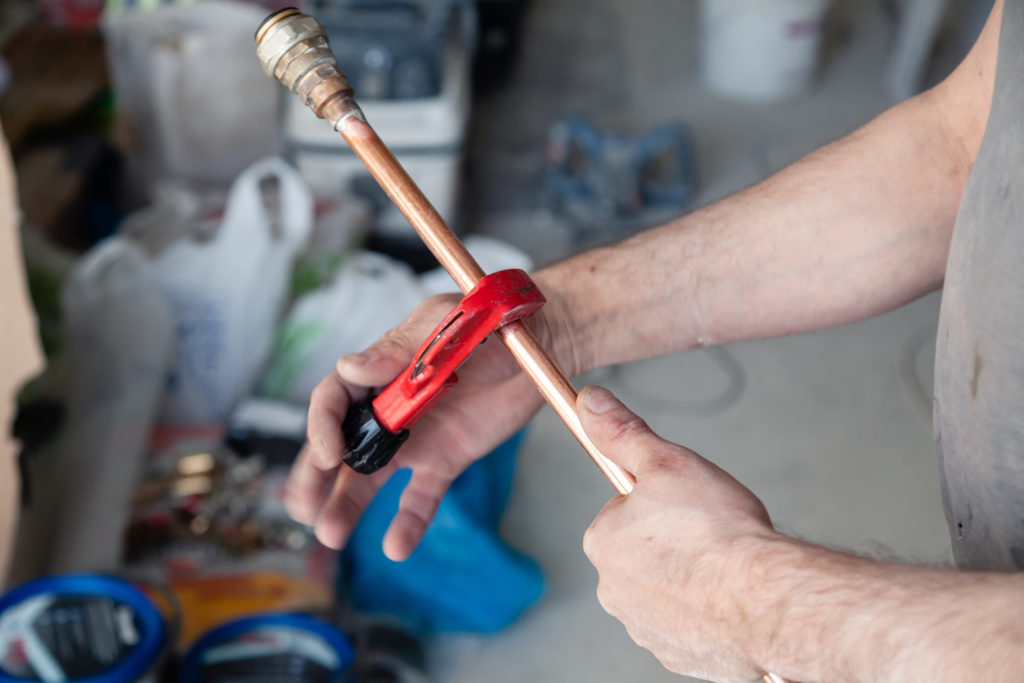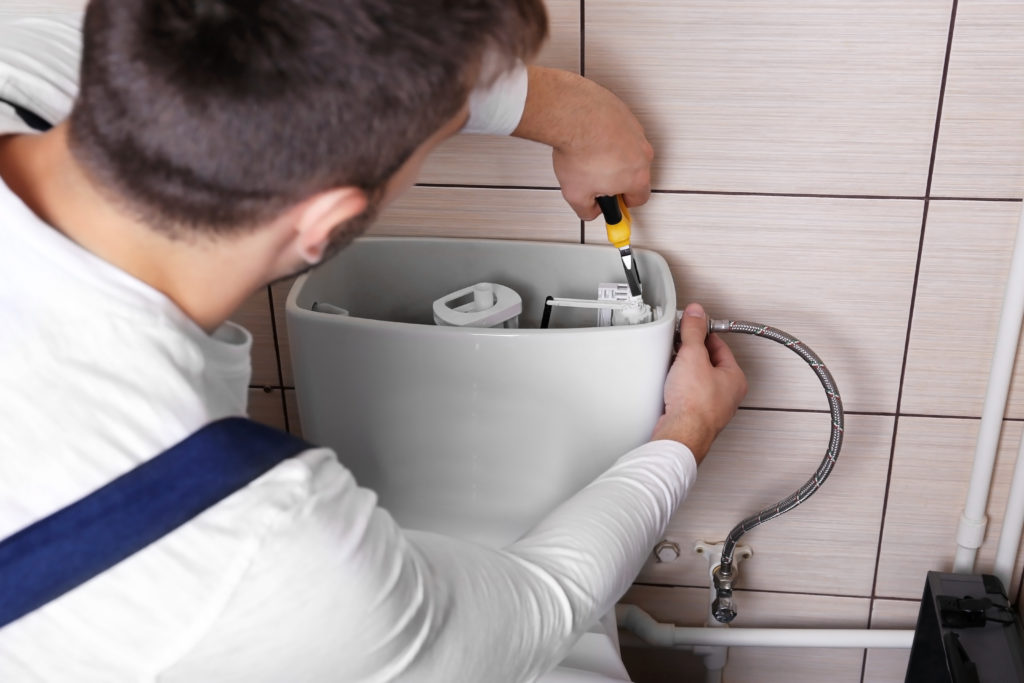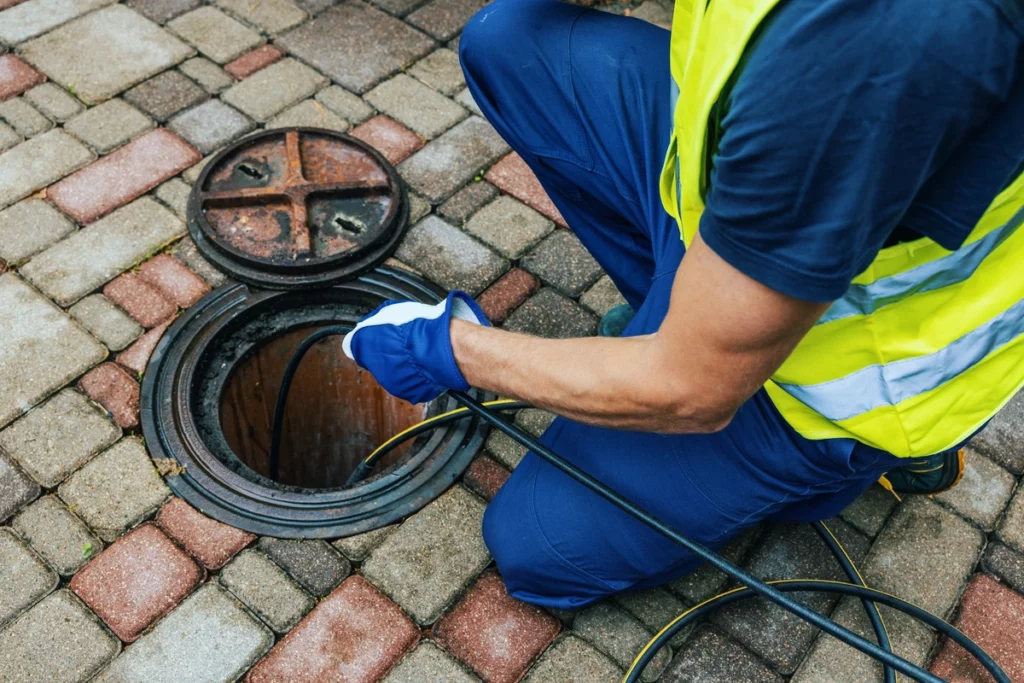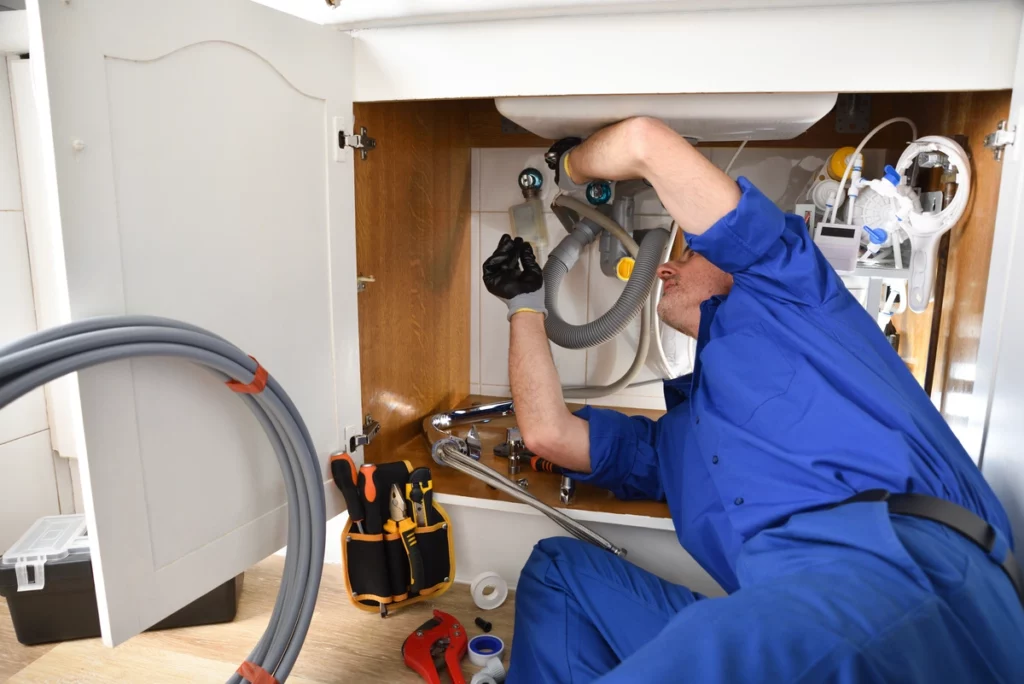Trying to decide between copper pipes vs PVC?
It’s the ultimate debate between plumbers and DIY home repair enthusiasts: Are copper or PVC pipes better? Should you stick with the traditional option or go for the new and improved material?
Thankfully, you usually don’t have to worry about what type of pipes you have if everything is working well. But if you’re having issues with your current set-up or building a new property, then you need to know what your options are. Let’s take a deeper dive into the pros and cons of copper pipes vs. PVC pipes so that you can choose which material is best for your situation.
The Original Plumbing Material: Copper Pipes
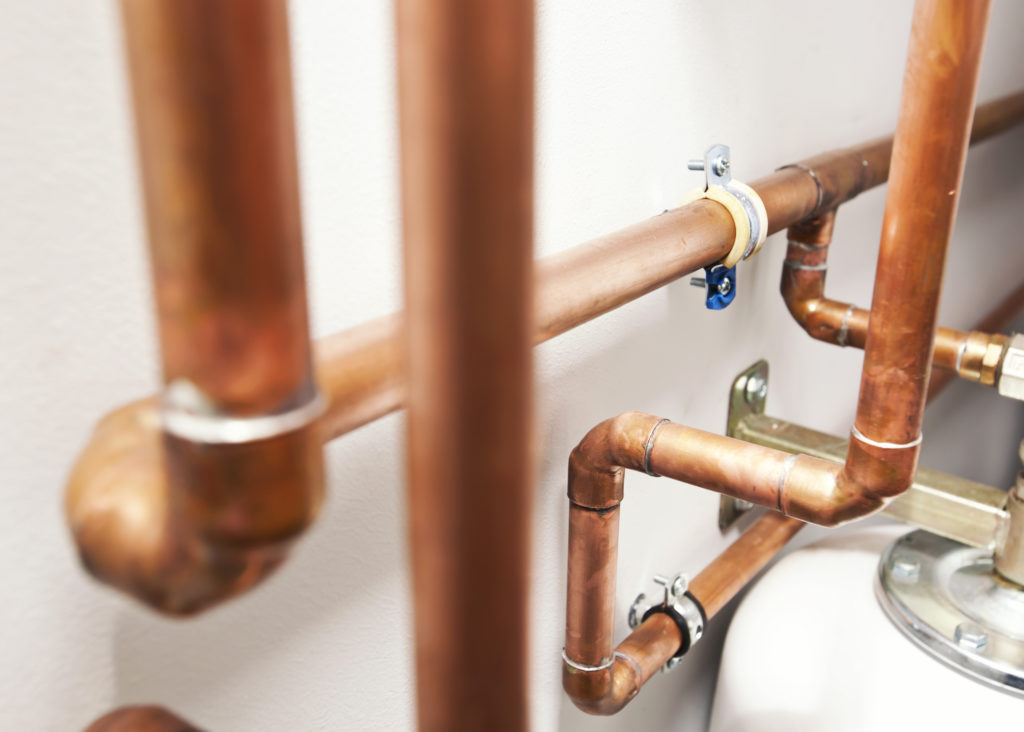
Copper pipes have been utilized in homes in the United States for a long time. Over 8 decades, in fact! Copper was actually first used as electrical wiring because it has a high level of conduction, and it is still used for this purpose today.
Additionally, copper has been widely used in plumbing. The material is incredibly resistant to corrosion, which is a big deal in plumbing. Copper is both lightweight and very durable. Copper has been considered to be a dependable piping material because it is highly compliant with building codes.
Copper pipes were once the only option in home plumbing, and most older homes already have copper pipe systems. It remains a top choice for plumbers and general contractors to this day. But with anything, there are advantages and disadvantages to copper pipes.
✅ Pros of Copper Pipes:
- Lasts longer than PVC pipes as long as the water is not acidic
- More flexible at the joints, so it resists vibration damage better (Great for areas that are prone to earthquakes)
- Copper is a pure metal so it is naturally cleaner than PVC
- The very thin walls allow copper pipes to fit into tighter spaces
- Can handle heat without losing strength
- More easily usable outdoors
❌ Cons of Copper Pipes:
- If the water is acidic, the pipes can corrode
- Can only be installed and serviced by a professional plumber since the joints need to be soldered
- More expensive than PVC pipes
- Noisier at higher pressures
- Tap water can sometimes taste metallic if not treated with reverse osmosis filtering
- Vulnerable to bursting if water freezes
- If blocks or clogs occur, they are difficult to remove
The New(er) Option: PVC Pipes
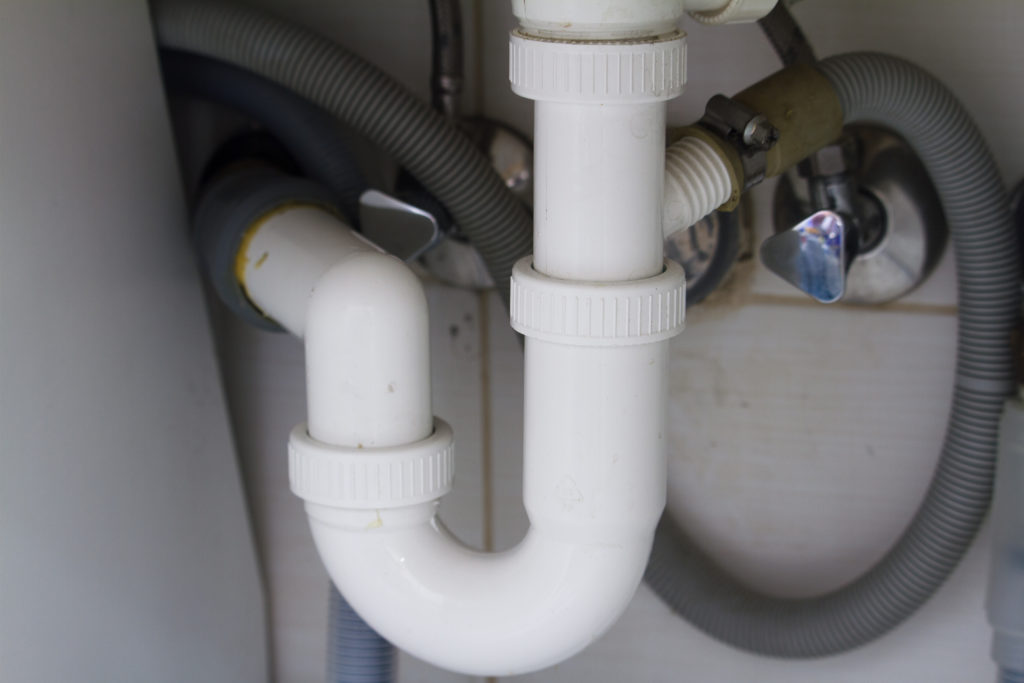
Polyvinyl chloride (PVC) is a plastic material that many plumbers have sworn by in recent years. PVC is a strong and lightweight material that has been used in many new homes. It’s also the go-to material for DIY plumbing projects.
PVC pipes (sometimes called plastic pipes) were originally manufactured in Germany in the 1930s. Their low cost and versatility caused their popularity to grow quickly. PVC pipes are used for plumbing, irrigation, agriculture, and other industrial purposes across the world. Just like copper, PVC pipes offer pros and cons:
✅ Pros of PVC Pipes:
- Less expensive than copper plumbing
- Easier installation process
- PVC is highly resistant to corrosion
- Quieter, even at high water pressure and speeds
- Doesn’t freeze as easily so is far less prone to bursting
- Doesn’t require insulation
- Since PVC doesn’t conduct heat, hot water doesn’t get lost as it travels
- Rarely becomes blocked or clogged
❌ Cons of PVC Pipes:
- Doesn’t last as long as copper
- Joints aren’t as flexible (will crack if bent)
- Can’t fit into tight spaces as well
- Not ideal for outdoor use (sensitive to sunlight so must stay hidden)
- May require support for underground plumbing
How to Choose Which Material Is Best for You
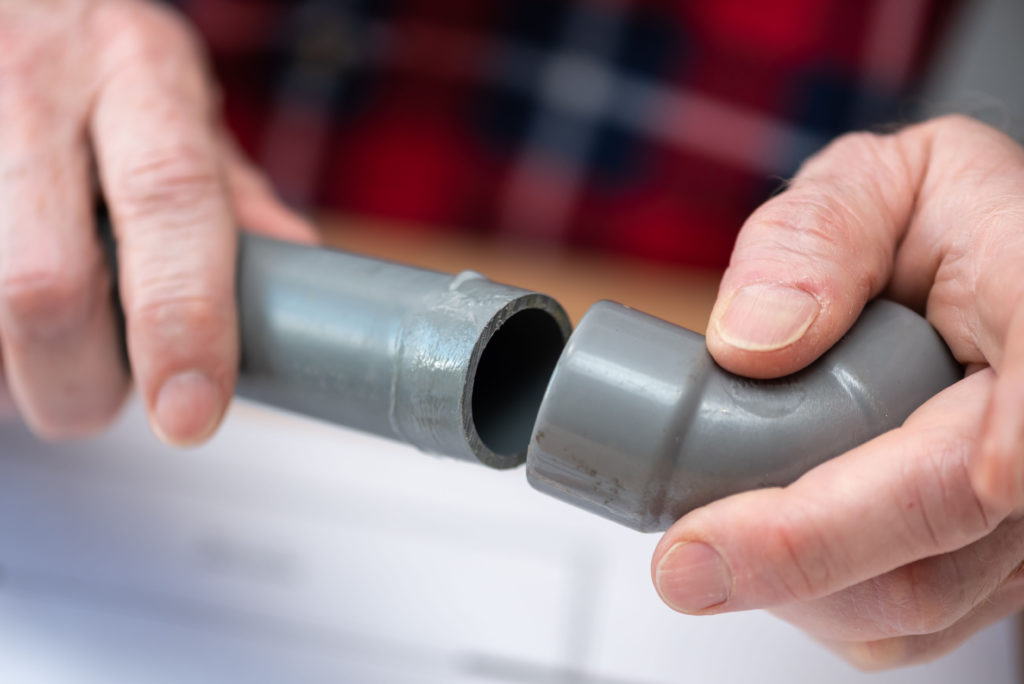
You may be looking at the lists of pros and cons and thinking both types of pipes perform pretty evenly. And you’d be right! The good news is that you don’t need to stress too hard over the right type of plumbing material because both PVC and copper have been used in thousands of homes and businesses with great success.
A good rule of thumb is that if you haven’t had any issues with your current pipe system, stick with your existing material. If you have PVC piping and haven’t had any issues, there’s no need to completely switch over to copper pipes, and vice versa.
However, if you’re building a new home or business and need to choose a piping system, consider certain things like:
- The history of earthquakes in the area
- The acidity of your water
- If the pipes will be exposed outdoors
- If the pipes will carry intense heat
- Average temperatures and freezing
Take the data of your specific building and region to make an informed decision based on the pros and cons listed in this article. For example, if you live on the San Andreas fault line in California, you’re probably better off with copper pipes. But if you’re on a tighter budget and live in a very cold climate, you might opt for PVC piping.
You can also confer with a trusted local plumber and get their opinion on which pipes to choose. Since a seasoned local plumber will have plenty of knowledge about the plumbing conditions in your area as well as how both types of pipes perform, they can give you an informed recommendation.
The Most Important Plumbing Decision to Make
Ultimately, you’ll likely be just fine with either of these plumbing pipes. Both copper and PVC piping have been proven to be effective for homes and businesses across the country for decades.
The more important decision is not the material you choose, but the contractor you trust with installation. Even with the best materials, an improper installation can leave your home or business with water leaks that will cost thousands to repair down the road. That’s why it’s crucial to do your research and hire a reputable plumber with plenty of reviews!
If you happen to be located near the Twin Cities, make sure to call our team at AJ Alberts Plumbing. We’ve also worked extensively with both PVC and copper piping materials, so you can trust us to make repairs or install new pipes in your bathroom or kitchen.
Contact us today with any questions, and our friendly team will get back to you promptly.

